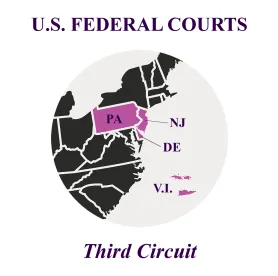The Third Circuit, on rehearing Clean Air Council v. U.S. Steel Corp., 2021 WL 3045927 (3rd Cir. July 20, 2021), affirmed the lower court and ruled that “subject to” does not mean “in compliance with” in Title V Clean Air Act (CAA) permits for purposes of identifying a federally permitted release that is exempt from release reporting under the Comprehensive Environmental Response, Compensation, and Liability Act (CERCLA).
CERCLA at §§ 9601, 9603 triggers immediate reporting requirements for the release of hazardous substances if the amount released exceeds a threshold reportable quantity, e.g., X pounds, in any 24-hour period. The person in charge of a facility has the duty to report such releases to the National Response Center (NRC). However, certain federally permitted releases are exempt from reporting if they are “subject to” CAA permits or are “in compliance with” Clean Water Act permits, and permits under other environmental statutes (i.e., the wording differs among many different statutes).
The plaintiff environmental group sued US Steel for failure to report the releases of benzene, hydrogen sulfide, and other hazardous substances. The facility used control rooms to treat raw gas before it was burned, but at the time of the releases, the control rooms were inoperative due to fires. Thus, the group argued that the releases were not exempt from reporting because they were not in compliance with CAA permit controls. The company did report the releases to the local health department but not to the NRC.
The Third Circuit found that the “subject to” language was ambiguous but that Congress knew the difference between “in compliance with” and “subject to,” as it used different wording in the exemptions. “Subject to” only means “governed or affected by,” not “in compliance with.” US Steel’s releases were held exempt from reporting to the NRC.
The ruling gives companies a broader exemption from CERCLA reporting than they previously had. However, voluntary reporting to the NRC is still an option, because the Environmental Protection Agency apparently maintains its “in compliance with” interpretation, EPA generally only follows DC Circuit cases rather than those of other circuits, or only one other circuit as is the case here. Other subsections of 9601(10) use different wording for other statutory exemptions, and state laws may vary on release reporting or unauthorized discharges.





 />i
/>i

